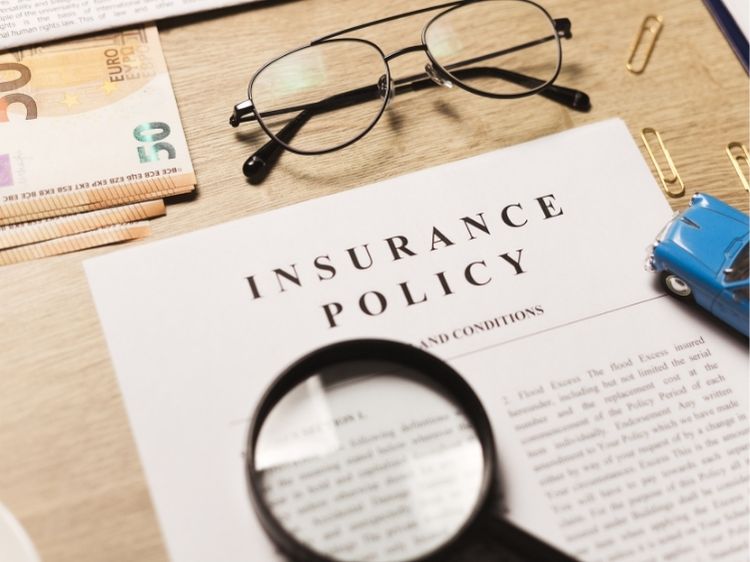Life insurance is an essential financial instrument that can provide assurance and security to family members and individuals. Many people mix the term “life insurance” with “accidental death insurance” as if they are serving a similar function. While both provide financial security, they differ regarding benefits, coverage, and limitations. Understanding the differences between these two products can assist individuals in making informed choices regarding their financial plans.
Defining Life Insurance and Accidental Death Insurance
The term “life insurance” refers to a broad form of financial security that guarantees beneficiaries named by the policy will receive an amount when the policyholder dies. This protection is available regardless of the reason for death as long as it’s not explicitly stated within the contract. There are various types of life insurance, such as term life, whole life insurance, and universal insurance. All of them offer different amounts of protection and investment options.
Accidental death insurance is a more specific kind of insurance that pays out only in the event that the insured dies as an indirect consequence of an accident. It doesn’t pay for natural causes, illnesses, or other deaths that are not caused by accidents. Because of its narrow coverage, accident-related death insurance is usually viewed as a supplement to a policy instead of a complete financial security net.
Coverage Differences and Policy Terms
One significant distinction between accidental and life insurance is their amount of protection. Life insurance is a more comprehensive security, as it ensures that beneficiaries will receive financial assistance regardless of whether the person who purchased it passes away due to illnesses, natural causes, or an accident. However, insurance for accidental deaths is only available for deaths that result from unavoidable accidents, such as car crashes or falls. It is also a good option for workplace accidents.
The policy terms can differ significantly. Life insurance policies usually require medical underwriting, which means applicants must pass a health examination or present medical documents before being able to obtain insurance. The premium rates are decided according to the applicant’s age, health status, lifestyle, health, and other risk elements. In contrast, accidental death insurance usually does not require medical tests. It is, therefore, more affordable to those unable to get the traditional insurance plan due to existing health issues.
Cost Considerations and Affordability
Cost is another essential aspect when comparing life insurance against accident-related death insurance. Life insurance premiums are generally higher because they cover various risks. Universal or whole life insurance policies may also include a cash value element. They can also function as an investment tool, accruing value over time and allowing policyholders to borrow against the policy’s cash value.
The cost of accidental death insurance is typically less expensive because it only covers unintentional deaths. Its limited coverage is that policyholders aren’t able to be eligible for benefits should they die from circumstances beyond their control or due to illness. Although this type of insurance is affordable for people looking for supplementary insurance, it doesn’t offer the complete financial security that the traditional life insurance policy can provide.
Claim Process and Beneficiary Payouts
Claiming life insurance policies is simple if all the required documentation and medical records are available. The beneficiaries typically have to provide the death certificate as well as any other documents required by the insurance company. The payout process can take a couple of weeks or months, depending on the complexity of the claim and whether additional investigation is required.
Insurance policies that cover accidental death claims typically require additional evidence to prove that the cause was an accident. Insurance companies might require the police report, medical record, or autopsy results to prove that the death occurred within the policy’s terms. This extra scrutiny may result in delays in the payout processing.
Which Policy Is Right for You?
The decision to choose between life insurance and accidental death insurance is based on the individual’s financial objectives, health status, and budget. Life insurance offers complete financial protection that ensures beneficiaries receive financial aid regardless of the reason for death. This makes it a great option for those who want to have longer-term peace of mind for their loved ones.
Insurance for accidental death, though less expensive, provides less coverage. It is a great option for those looking for more protection, particularly those involved in high-risk jobs or other activities. However, relying on insurance for accidental deaths could create significant gaps in coverage, which is why it is important to assess your own needs prior to making the decision.
Final Thoughts
Understanding the difference between accidental and life insurance is essential in making plans. Life insurance provides comprehensive coverage and ensures that the beneficiaries are covered regardless of the reason for death. In the event of a death accident, although less expensive and easier to acquire, it offers only a few benefits and does not offer the financial protection that a fully life-insured insurance policy provides. Through careful analysis of their personal financial goals and risks, people can choose the best policy to protect the loved ones they love and protect their economic security.

